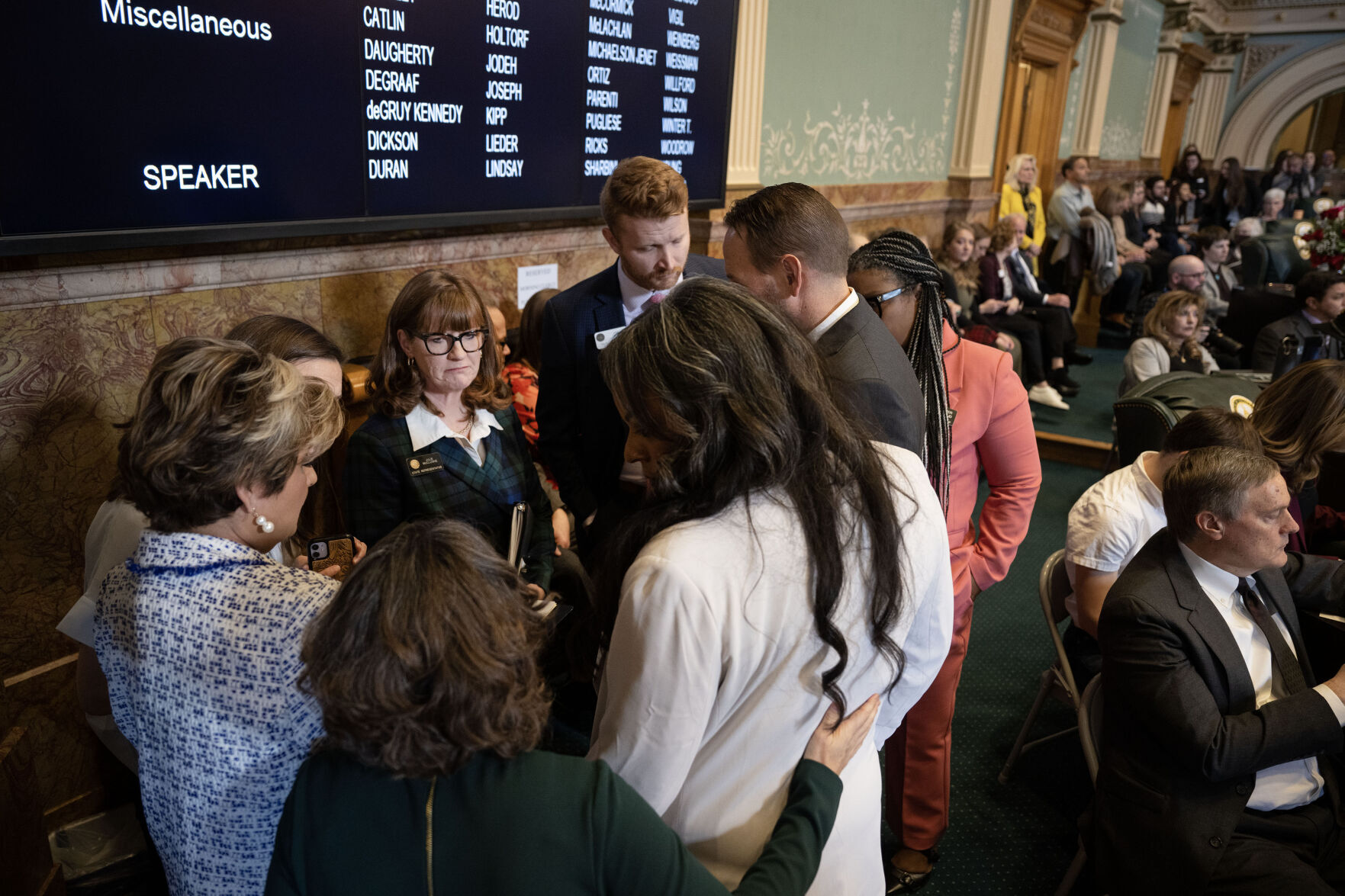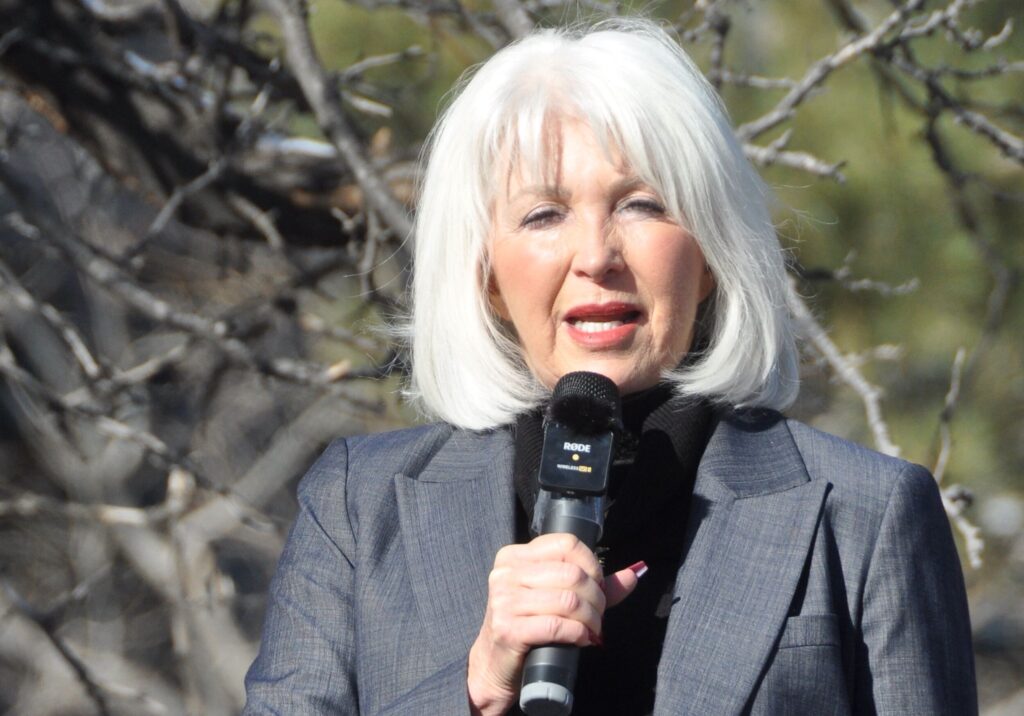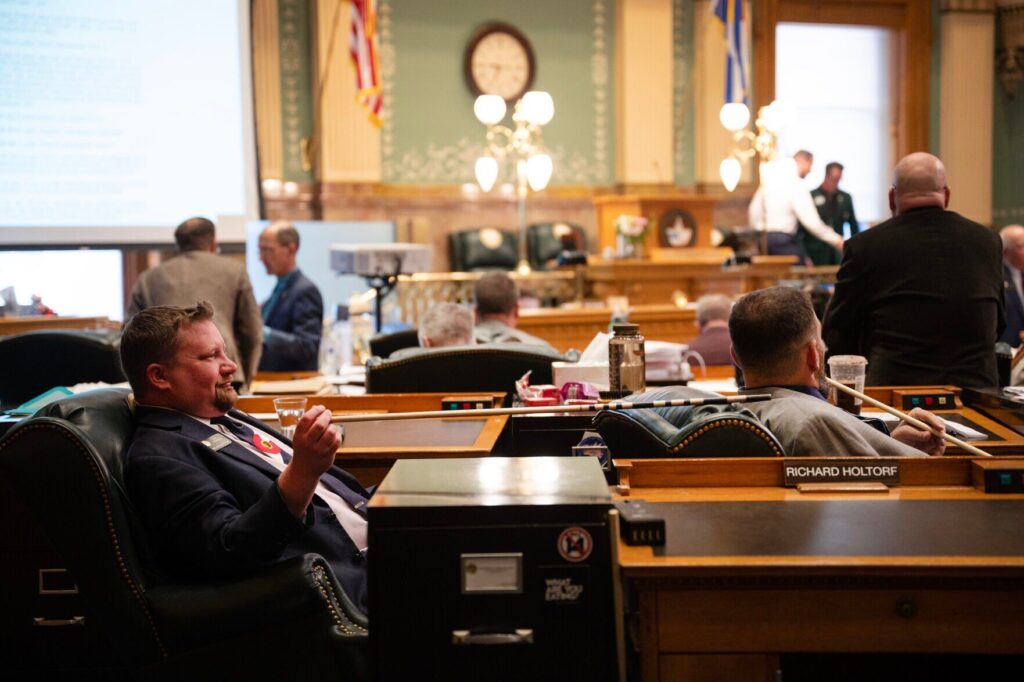Soul searching on open meetings | CAPITOL M

The news this week that two House Democrats are suing their leadership and that of Republican lawmakers over failure to comply with the state’s open meetings law has been met with both cheering (from reporters) and grimaces (from lawmakers).
Capitol M has been covering the General Assembly for a variety of publications since 1998, missing only the 2012 session.
As a lifelong political junkie, raised in a family where politics was the family pastime, the opportunity to cover the legislature was a dream come true.
But over those 25 years, most particularly in the last decade, one problem has stood out like a sore thumb: lack of adherence by the General Assembly to the state’s open meetings laws.
The law approved by voters with a 60% margin in 1972 is simple: Wherever two or more lawmakers are gathered to discuss public business, that’s an open meeting, with minutes to be taken and provided to the public.
During the last legislative session, when lawmakers went behind closed doors to discuss some issue with a bill, a staffer for the Senate Democratic caucus insisted that there had to be a vote taken in that meeting in order for it to be considered a public meeting. When Capitol M pointed out his interpretation was wrong, at least in how it applied to the legislature, his response was, “They do it all the time.”
That does not make it right.
Capitol M has stood outside the Capitol’s south side numerous times as Democratic lawmakers walked over to the First Baptist Church, usually on Mondays around noon, to hold their weekly caucus meetings. Notices for those meetings are never published.
Republicans have the same meetings, sometimes in the Capitol, sometimes in offices outside of the Capitol complex. No notices are published on those either, despite claims that the public and press are invited to attend. During 2023, House Republicans held their caucus meetings on Monday morning in one of the lawmakers’ offices, and members of the press did attend from time to time.
What happens in those closed door meetings, according to the lawsuit filed by Reps. Bob Marshall and Elisabeth Epps, is that vote counting takes place, in addition to formulating strategy.
What that means is that by the time a hearing takes place on most bills, votes have already been counted and the hearings are often little more than just for show. It should make all of you boiling mad, as citizens, taxpayers and voters who care about and pay for how government operates.
So, how often do these closed doors meetings take place? It’s not just caucuses.
Every time you hear the words “senatorial five,” that’s a discussion among lawmakers that you, the voters of this state, are not being allowed to hear. Every time you see lawmakers gathered in the front of the House or Senate but away from the microphone, that’s a discussion among lawmakers that you, the voters of this state, are not allowed to hear.
When lawmakers leave the floor in the middle of the day’s business, as was the case on the last day of the 2023 session, when lawmakers huddled in the governor’s office to try to figure out a way to keep his land use bill from heading to the scrap heap, you’re not allowed to hear what’s being negotiated. Those could be conversations and decisions that affect every single Coloradan. You have a right to know.
How often does it happen? On average, it likely occurs every single day of the 120-day session and beyond.
Those of us in the Capitol press corps know about it, and we don’t challenge it enough.
When we find out about one of these closed-door meetings, which is harder than it sounds, we try to get into those meetings. But learning about it is a rarity, often reserved for when a lawmaker is annoyed enough to tip us about it.
Frankly, we aren’t doing our job to the best of our abilities if we aren’t being your eyes and ears on the legislature, including when lawmakers go behind closed doors that they are not allowed to keep us, and you, out of.
The question, then, is why we don’t challenge it?
The press corps does talk about these things pretty regularly. Sometimes, those discussions take place in a part of the House or Senate chambers where reporters are not allowed to go. Sometimes, it is about preserving relationships with lawmakers because good relationships mean access. Another is concern that marching into these closed door meetings – sometimes referred to as “storming the gates” – could prevent lawmakers from having “candid” discussions about policy.
Should that be our concern? Maybe, but that’s not what the open meetings law says. If two or more are gathered, that’s public policy that affects your life and business that they’re discussing.
The solution – how to keep you as best informed as we can, including when lawmakers go off in the corner somewhere to talk about things they don’t want you, or us, to know about – is not an easy one.
But loosening the law so that lawmakers can continue to conduct business as usual, however, is not a solution that reporters or voters should be willing to agree with.














